|
Books Should Be Free Loyal Books Free Public Domain Audiobooks & eBook Downloads |
|
|
Books Should Be Free Loyal Books Free Public Domain Audiobooks & eBook Downloads |
|
Top Authors |
|---|
|
Book type:
Sort by:
|
By: Frances Hodgson Burnett (1849-1924) | |
|---|---|
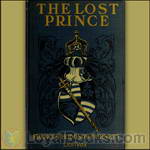 The Lost Prince
The Lost Prince
“The Lost Prince” is about Marco Loristan, his father, and his friend, a street urchin named The Rat. Marco’s father, Stefan, is a Samavian patriot working to overthrow the cruel dictatorship in the kingdom of Samavia. Marco and his father, Stefan, come to London where Marco strikes up a friendship with a crippled street urchin known as The Rat. Marco’s father, realizing that two boys are less likely to be noticed, entrusts them with a secret mission to travel across Europe giving the secret sign: ‘The Lamp is lighted... | |
 The Shuttle
The Shuttle
Rosalie Vanderpoel, the daughter of an American multimillionaire marries an impoverished English baronet and goes to live in England. She all but loses contact with her family in America. Years later her younger sister Bettina, beautiful, intelligent and extremely rich, goes to England to find what has happened to her sister. She finds Rosalie shabby and dispirited, cowed by her husband's ill treatment. Bettina sets about to rectify matters. She meets Lord Mount Dunstan, an impoverished earl, who lives nearby and they fall in love, but he cannot speak because it would look as if he were after her money... | |
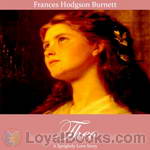 Theo
Theo
It's described as "A SPRIGHTLY LOVE STORY" and it is written by F. H. Burnett, "one of the most charming among American writers!" | |
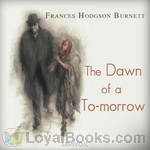 The Dawn of a To-morrow
The Dawn of a To-morrow
A wealthy London business man takes a room in a poor part of the city. He is depressed and has decided to take his life by going the next day to purchase a hand gun he had seen in a pawnshop window. The morning comes with one of those 'memorable fogs' and the adventure he has in it alters his decisions and ultimately his life. | |
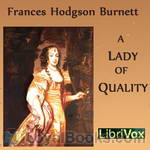 A Lady of Quality
A Lady of Quality
Set in late 1600's England, the story follows the life of a woman living an unconventional life. The loves of her life and all of its ups and downs are included. | |
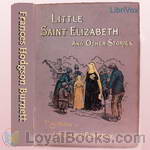 Little Saint Elizabeth and Other Stories
Little Saint Elizabeth and Other Stories
She had not been brought up in America at all. She had been born in France, in a beautiful château, and she had been born heiress to a great fortune, but, nevertheless, just now she felt as if she was very poor, indeed. And yet her home was in one of the most splendid houses in New York. She had a lovely suite of apartments of her own, though she was only eleven years old. She had had her own carriage and a saddle horse, a train of masters, and governesses, and servants, and was regarded by all the children of the neighborhood as a sort of grand and mysterious little princess, whose incomings and outgoings were to be watched with the greatest interest.... | |
 In the Closed Room
In the Closed Room
This is a short story about a shy, quiet little girl living in a big city. When her parents are offered the opportunity to take care of a house in the suburbs for the summer she meets another little girl in the house and they become playmates. (Introduction by Linda Andrus) | |
 Emily Fox-Seton
Emily Fox-Seton
Have you ever wondered what happened to Cinderella after she married the prince? Have you ever asked yourself if it was really "happy ever after?" Actually, in this Victorian melodrama, it's not. 35-years-old Emily Fox-Seton, quite penniless and a little lonely, saves herself from becoming an old maid by agreeing to a marriage proposal from the marquess of Walderhurst, thus becoming "one of the richest Marchionesses in England". She is naïve, kind and good. She doesn't believe that people are really willing to hurt her, but why are all these strange accidents happening?This novel is divided into 2 parts... | |
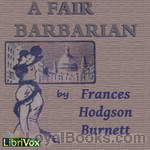 A Fair Barbarian
A Fair Barbarian
The setting is a small English village in the 19th century. When her niece shows up on her doorstep unexpectedly, a quiet spinster finds her life turned upside down. | |
 Robin
Robin
Starting with a summary of the 1922 novel The Head of the House of Coombe, which followed the relationships between a group of pre-WWI English nobles and commoners, this sequel, called Robin, completes the story of Robin, Lord Coombe, Donal and Feather. (Introduction by Linda Andrus) | |
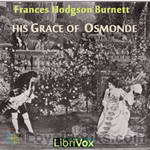 His Grace of Osmonde
His Grace of Osmonde
His Grace of Osmonde, being the portions of that nobleman's life omitted in the relation of his Lady's story presented to the world of fashion under the title of 'A Lady of Quality'Set in late 1600's England, the story follows the life of a woman living an unconventional life. The loves of her life and all of its ups and downs are included. And as above, has more of the story of the Duke who becomes the love of her life. | |
 Racketty-Packetty House
Racketty-Packetty House
| |
 The Land of the Blue Flower
The Land of the Blue Flower
| |
 The White People
The White People
| |
 The Head of the House of Coombe
The Head of the House of Coombe
| |
 Esmeralda
Esmeralda
| |
 The Little Hunchback Zia
The Little Hunchback Zia
| |
 Vagabondia 1884
Vagabondia 1884
| |
 "Seth"
"Seth"
| |
 In Connection with the De Willoughby Claim
In Connection with the De Willoughby Claim
| |
 That Lass O' Lowrie's 1877
That Lass O' Lowrie's 1877
Frances Hodgson Burnett was born and grew up in Manchester, England, and emigrated to the United States with her family at the age of 16. For her first novels, written in Knoxville, Tennessee and published in New York, she drew upon her knowledge of life and speech of the Lancashire working classes. Set in a Lancashire mining town, That Lass o' Lowries is a gritty, and at times brutal, tale of romance across the classes, which stands in stark contrast to her later work. | |
 My Robin
My Robin
| |
 Louisiana
Louisiana
| |
 Mère Giraud's Little Daughter
Mère Giraud's Little Daughter
| |
 "Le Monsieur de la Petite Dame"
"Le Monsieur de la Petite Dame"
| |
 One Day At Arle
One Day At Arle
| |
 Lodusky
Lodusky
| |
 "Surly Tim" A Lancashire Story
"Surly Tim" A Lancashire Story
| |
By: Charlotte Brontë (1816-1855) | |
|---|---|
 Jane Eyre
Jane Eyre
This timeless novel highlights the abuse and neglect that the orphaned Jane Eyre faced while growing up. This story opens with Jane Eyre being shipped off to be cared for by her uncle Mr. Reed who lived at the Gateshead Hall. Her uncle was always kind to her but his wife, Sarah Reed was anything but. Sarah’s son John and Sarah’s two daughters also contributed to Jane’s torment. Jane was excluded from all family activities and found solace only in her books and dolls. One day John knocked her down and she tried to defend herself... | |
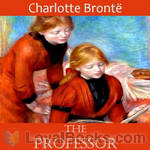 The Professor
The Professor
The book tells the story of a young man named William Crimsworth. It describes his maturation, his loves and his eventual career as a professor at an all-girls’ school. | |
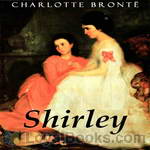 Shirley
Shirley
Shirley is an 1849 social novel by the English novelist Charlotte Brontë. It was Brontë's second published novel after Jane Eyre (originally published under Brontë's pseudonym Currer Bell). The novel is set in Yorkshire in the period 1811–1812, during the industrial depression resulting from the Napoleonic Wars and the War of 1812. The novel is set against a backdrop of the Luddite uprisings in the Yorkshire textile industry. | |
 Biographical Notes on the Pseudonymous Bells
Biographical Notes on the Pseudonymous Bells
| |
By: Henrietta Elizabeth Marshall (1867-1941) | |
|---|---|
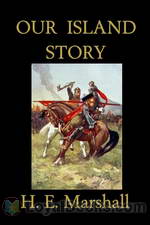 Our Island Story
Our Island Story
Tailored specially to make history more palatable and interesting to children, Our Island Story, by Henrietta Elizabeth Marshall, is a charmingly illustrated volume that promises hours of delight for parents as well as children. Beginning with the myths and legends about Albion, the author ensures that she captivates the child's imagination from the very first page. Unlike today's dry and non-committal history tomes that are prescribed in schools, Our Island Story is full of lyrical prose, literary allusions, heroic and tragic characters, the hunger for power and the glory of empire... | |
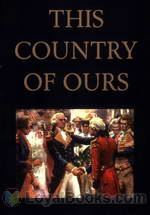 This Country of Ours
This Country of Ours
History made interesting for young readers—This Country of Ours by Henrietta Elizabeth Marshall provides a simple and easy to comprehend way of looking at the history of the United States. Arranged chronologically in seven long chapters, it presents events in a story form, making them memorable and very different from other formats. One of the challenges that writers of history face is about fleshing out the characters and making the bland repetition of dates and dynasties seem relevant to modern day readers... | |
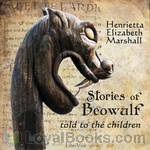 Stories of Beowulf Told to the Children
Stories of Beowulf Told to the Children
The brave warrior, Beowulf, comes to the aid of King Hrothgar when he hears that Grendel, a horrible monster, is terrorizing the inhabitants of Hart Hall. Beowulf heroically battles Grendel, the Water Witch, and a fierce dragon. | |
By: Edward Gibbon (1737-1794) | |
|---|---|
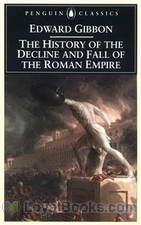 History of the Decline and Fall of the Roman Empire
History of the Decline and Fall of the Roman Empire
Spanning a period of nearly 1500 years, this monumental work of history tracks the orbit of one of the greatest Empires of all time. The sheer scale and sweep of the narrative is breathtaking in its ambitious scope and brings to vivid life the collapse of a magnificent military, political and administrative structure. Proceeding at a brisk pace, the original fourteen volumes describe debauched emperors, corrupt practices, usurpers and murderers, bloody battles, plunder and loot, barbarian hordes, tumultuous events like the Crusades and invaders like Genghis Khan and many more... | |
 Memoirs of My Life and Writings
Memoirs of My Life and Writings
| |
By: Charles Austin Beard (1874-1948) | |
|---|---|
 History of the United States: The Colonial Period Onwards
History of the United States: The Colonial Period Onwards
Vol. I: The Colonial Period. Charles Austin Beard was the most influential American historian of the early 20th century. He published hundreds of monographs, textbooks and interpretive studies in both history and political science. He graduated from DePauw University in 1898, where he met and eventually married Mary Ritter Beard, one of the founders of the first Greek-letter society for women, Kappa Alpha Theta. Many of his books were written in collaboration with his wife, whose own interests lay in feminism and the labor union movement (Woman as a Force in History, 1946)... | |
By: Thomas Babington Macaulay (1800-1859) | |
|---|---|
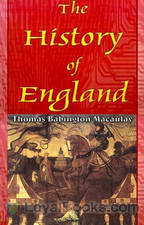 The History of England, from the Accession of James the Second
The History of England, from the Accession of James the Second
Hailed more as a literary masterpiece than an accurate account of historical facts, The History of England from the Accession of James the Second by Thomas Babington Macaulay is an admirable mix of fact and fiction. Modern day readers may find much that is offensive and insensitive in this five volume work which covers a particular period in the long and eventful history of Britain. However, it is certainly a book that leads the reader on to further research into the events and people mentioned... | |
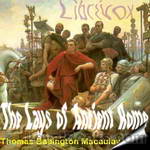 The Lays of Ancient Rome
The Lays of Ancient Rome
The Lays of Ancient Rome comprise four narrative poems comprised by Lord Thomas Babington Macaulay: recalling popular episodes from Roman historical-legends that were strongly moral in tone: exemplifying Roman virtue against Latine perfidy.The four poems are:- Horatius - Horatius and two companions seek to hold back a large invading Etruscan force at the far end of a bridge over the Tiber River. The trio are willing to lay down their lives so as to prevent the Etruscans crossing and sacking the otherwise ill-defended Rome: it is a desperate gamble to buy enough time for the Romans to destroy the bridge in advance of the hostile army... | |
By: Robert Louis Stevenson (1850-1894) | |
|---|---|
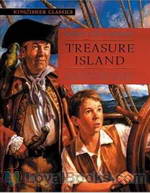 Treasure Island
Treasure Island
A heady mix of thrills, mystery, atmosphere and memorable characters, Treasure Island by Robert Louis Stevenson is a classic adventure story that has enthralled both young and old alike ever since it was first published in 1883. Right from the racy opening chapter where the young hero Jim Hawkins encounters a mysterious guest, Billy Bones, at the Admiral Benbow Inn run by his widowed mother, the tale carries the reader off on an edge-of-the-seat roller-coaster ride of non-stop action and drama.... | |
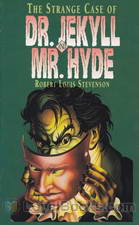 The Strange Case of Dr. Jekyll And Mr. Hyde
The Strange Case of Dr. Jekyll And Mr. Hyde
A mysterious door-way, an incident of ferocious violence, a respectable and popular scientist, well-known for his enjoyable dinner parties who suddenly changes his will, the brutal killing of an elderly Member of Parliament, a diabolical serum that can transform one person into another – truly the ingredients of a fast good thriller! Robert Louis Stevenson's The Strange Case of Dr Jekyll and Mr Hyde has captured the imaginations of readers ever since it was first published in 1886. It met with tremendous success and the words “Jekyll and Hyde” entered the English language as symbols of two conflicting sides of the same personality... | |
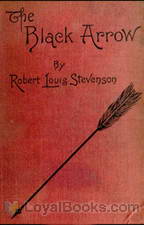 The Black Arrow; a Tale of Two Roses
The Black Arrow; a Tale of Two Roses
The Black Arrow tells the story of Richard (Dick) Shelton during the Wars of the Roses: how he becomes a knight, rescues his lady Joanna Sedley, and obtains justice for the murder of his father, Sir Harry Shelton. Outlaws in Tunstall Forest organized by Ellis Duckworth, whose weapon and calling card is a black arrow, cause Dick to suspect that his guardian Sir Daniel Brackley and his retainers are responsible for his father’s murder. Dick’s suspicions are enough to turn Sir Daniel against him, so he has no recourse but to escape from Sir Daniel and join the outlaws of the Black Arrow against him... | |
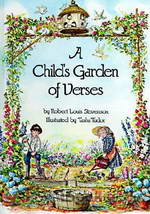 A Child's Garden of Verses
A Child's Garden of Verses
Beloved by many generations of children, A Child’s Garden of Verses is a beautiful collection of children’s poetry. Sometimes thoughtful, sometimes whimsical, but always fun. | |
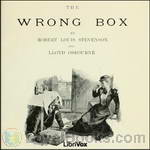 The Wrong Box
The Wrong Box
The Wrong Box is a comedy about the ending of a tontine (a tontine is an arrangement whereby a number of young people subscribe to a fund which is then closed and invested until all but one of the subscribers have died. That last subscriber then receives the whole of the proceeds). The story involves the last two such survivors and their relations, a train crash, missing uncles, surplus dead bodies and innocent bystanders. A farce really. | |
 The Amateur Emigrant
The Amateur Emigrant
In July 1879, Robert Louis Stevenson left Scotland to meet his future wife in her native California. Leaving by ship from Glasgow, Scotland, he determined to travel in steerage class to see how the working classes fared. At the last minute he was convinced by friends to purchase a ticket one grade above the lowest price, for which he was later thankful after seeing the conditions in steerage, but he still lived among the ‘lower’ classes. His comments on the experience make interesting reading. His father however was so shocked at the thought of his son associating with people ‘beneath him’ that the work was not published for a number of years, | |
 Olalla
Olalla
“Olalla” was a “shilling shocker” written for the Christmas season in 1885, just before the publication of Stevenson’s Dr. Jekyll and Mr. Hyde. The nameless protagonist of this Gothic tale, a wounded soldier, goes to the Spanish countryside to recuperate. He finds himself enthralled by the beautiful Olalla, the daughter of his hostess, whose family conceals a terrible secret. | |
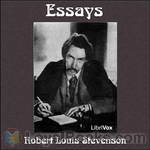 Essays of Robert Louis Stevenson
Essays of Robert Louis Stevenson
“Extreme busyness…is a symptom of deficient vitality; and a faculty for idleness implies a catholic appetite and a strong sense of personal identity.” What comforting words for the idle among us! Like many of the best essayists, Stevenson is very much the genial fireside companion: opinionated, but never malicious; a marvellous practitioner of the inclusive monologue. In this collection of nine pieces he discusses the art of appreciating unattractive scenery, traces the complex social life of dogs, and meditates in several essays upon the experience of reading literature and writing it... | |
 Essays in the Art of Writing
Essays in the Art of Writing
| |
 Master of Ballantrae
Master of Ballantrae
| |
 Travels with a Donkey in the Cevennes
Travels with a Donkey in the Cevennes
| |
 In the South Seas
In the South Seas
| |
 Island Nights' Entertainments
Island Nights' Entertainments
A marvelous depiction of two sides of South Sea Islands' life through three separate tales. One, the experience of the incoming British keen to live free and exploit the innocent; the other the supernatural as perceived by Stevenson working in the lives of the natives. One tale carries the germ of the story of Madame Butterfly, since become a part of Western culture. Another is an extraordinary retelling of a German horror story transposed to a South Sea Island setting. The last is an effort of the pure Stevensonian imagination and there can be nothing better. | |
 A Christmas Sermon
A Christmas Sermon
| |
 Fables
Fables
| |
 Travels with a Donkey in the Cevennes
Travels with a Donkey in the Cevennes
A classic of travel writing, this book recounts Stevenson's adventures on an extended walk through uplands and mountains in south-western France. Humorous on his own failings as a traveller, and on his travails with Modestine the self-willed donkey, it is also an exploration of peasant life in an area marked by the violence of the wars of religion. This version includes the fragment "A mountain town in France", originally intended as the opening chapter, but often omitted and published as a separate essay. | |
 Across the Plains
Across the Plains
| |
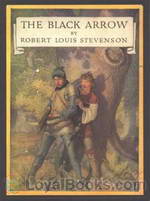 The Black Arrow A Tale of the Two Roses
The Black Arrow A Tale of the Two Roses
| |
 Inland Voyage
Inland Voyage
As a young man, Stevenson wished to be financially independent and began his literary career by writing travelogues. This is his first published work, written at a time when travel for pleasure was still a rarity. He and a friend traveled by canoe through France and Belgium and he relates how they were thrown in jail, mistaken for traveling salesmen and became embroiled in gypsy life. | |
 Tales and Fantasies
Tales and Fantasies
| |
 Edinburgh Picturesque Notes
Edinburgh Picturesque Notes
| |
 Ballads
Ballads
| |
 Prince Otto, a Romance
Prince Otto, a Romance
| |
 Stories By English Authors: France
Stories By English Authors: France
| |
 The Silverado Squatters
The Silverado Squatters
| |
 Lay Morals
Lay Morals
| |
 Weir of Hermiston
Weir of Hermiston
| |
 St. Ives, Being the Adventures of a French Prisoner in England
St. Ives, Being the Adventures of a French Prisoner in England
| |
 David Balfour, Second Part Being Memoirs Of His Adventures At Home And Abroad
David Balfour, Second Part Being Memoirs Of His Adventures At Home And Abroad
| |
 A Footnote to History Eight Years of Trouble in Samoa
A Footnote to History Eight Years of Trouble in Samoa
| |
 Father Damien, an Open Letter to the Reverend Dr. Hyde of Honolulu
Father Damien, an Open Letter to the Reverend Dr. Hyde of Honolulu
| |
 The Waif Woman
The Waif Woman
| |
 Memories and Portraits
Memories and Portraits
| |
 The Sea Fogs
The Sea Fogs
| |
 Not Yet my Soul
Not Yet my Soul
15 recordings of Not Yet my Soul by Robert Louis Stevenson. This was the Fortnightly Poetry project for May 19, 2013.Robert Louis Balfour Stevenson (13 November 1850 – 3 December 1894) was a Scottish novelist, poet, essayist, and travel writer. His most famous works are Treasure Island, Kidnapped, and Strange Case of Dr Jekyll and Mr Hyde.The following poem comes from his collection entitled Underwoods, first published in 1887. | |
 Records of a Family of Engineers
Records of a Family of Engineers
| |
 Familiar Studies of Men and Books
Familiar Studies of Men and Books
| |
 Virginibus Puerisque and Other Papers
Virginibus Puerisque and Other Papers
| |
 Correspondence
Correspondence
| |
 New Poems
New Poems
| |
 Moral Emblems
Moral Emblems
| |
 The Pocket R.L.S., being favourite passages from the works of Stevenson
The Pocket R.L.S., being favourite passages from the works of Stevenson
| |
 Letters of Robert Louis Stevenson
Letters of Robert Louis Stevenson
MANUAL OF SURGERY, OXFORD MEDICAL PUBLICATIONSBY ALEXIS THOMSON, F.R.C.S.Ed.PREFACE TO SIXTH EDITION Much has happened since this Manual was last revised, and many surgical lessons have been learned in the hard school of war. Some may yet have to be unlearned, and others have but little bearing on the problems presented to the civilian surgeon. Save in its broadest principles, the surgery of warfare is a thing apart from the general surgery of civil life, and the exhaustive literature now available on every aspect of it makes it unnecessary that it should receive detailed consideration in a manual for students... | |
 Vailima Prayers and Sabbath Morn
Vailima Prayers and Sabbath Morn
| |
 Memoir of Fleeming Jenkin
Memoir of Fleeming Jenkin
| |
 Vailima Letters
Vailima Letters
| |
 A Lowden Sabbath Morn
A Lowden Sabbath Morn
| |
By: Bram Stoker (1847-1912) | |
|---|---|
 Dracula
Dracula
Dracula tells the tale of a sinister Transylvanian aristocrat who seeks to retain his youth and strength by feeding off human blood. The author, Bram Stoker, a young Victorian theater professional, was probably inspired by the strange epidemic of vampirism that occurred in remote parts of Eastern Europe in the 17th and 18th centuries. These stories were recounted by travelers who later arrived in England and other parts of Western Europe. Stoker initially meant the tale to be written as a play in which he wanted Sir Henry Irving, a leading Victorian actor, to play the role of the malevolent Count Dracula... | |
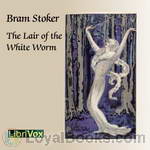 The Lair of the White Worm
The Lair of the White Worm
Set in Mercia, a small part of the English county of Derbyshire, the novel focuses on the events experienced by Adam Salton in the town he gradually discovers to be host to mysterious and inexplicable occurrences, which are further intensified with its equally eccentric residents. Exploring topics including mesmerism, occultism, and supernatural forces, Stoker’s piece depicts all the essential elements of a thrilling horror story. The horror novel gets under way with the introduction of Adam... | |
 The Jewel of Seven Stars
The Jewel of Seven Stars
The Jewel of Seven Stars (also published under the name: The Jewel of the Seven Stars) is a horror novel by Bram Stoker first published in 1903. The story is about an archaeologist’s plot to revive Queen Tera, an ancient Egyptian mummy. | |
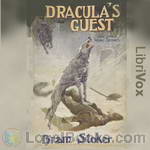 Dracula's Guest and other Weird Tales
Dracula's Guest and other Weird Tales
Nine Gothic Horror Tales by the author of Dracula. Note : These tales are not for the squeamish!!! 0r a dark windy night. | |
 The Lady of the Shroud
The Lady of the Shroud
| |
 The Man
The Man
| |
By: L. Frank Baum (1856-1919) | |
|---|---|
 The Wonderful Wizard of Oz
The Wonderful Wizard of Oz
One of the greatest American novels and a popular culture sensation, The Wonderful Wizard of Oz depicts the adventures of the young Dorothy Gale, who is swept away from her colorless farm home in Kansas by a cyclone, and winds up in the magical Land of Oz. Trapped in an unknown land, Dorothy must find a way back home and subsequently embarks on an adventure and meets a group of colorful characters along the way. Serving as an inspiration throughout generations, the children’s novel has been represented through various cinema adaptations and musicals... | |
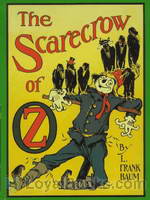 The Scarecrow of Oz
The Scarecrow of Oz
Published in 1915, The Scarecrow of Oz is the ninth book in the Oz book series and focuses on the adventures of Cap’n Bill, Trot, and the Scarecrow, who find themselves entangled in the politics of Jinxland and must work against formidable odds to overthrow its despot and restore rule to its rightful successor. Apart from the appearances of familiar faces, the novel also accommodates a fresh set of characters and magical creatures residing in the Land of Oz, further contributing to its classification as a typical Baum masterpiece... | |
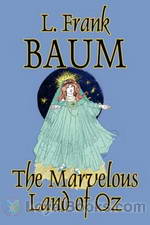 The Marvelous Land of Oz
The Marvelous Land of Oz
Published in 1904, The Marvelous Land of Oz is the second book in Baum’s Oz series and follows the adventures of Tip, a young boy who travels the mystical Oz after running away from the terrifying witch Mombi. Furthermore, the novel reunites readers with familiar characters including the Scarecrow, Tin Woodman, Glinda the Good Witch, while also introducing bright new characters who deem to be just as memorable. Unlimited action, intense magic, captivating characters, and an unexpected twist, the adventure novel has remained a classic for generations, and has only strengthened the series appeal with its fresh intake on the familiar set... | |
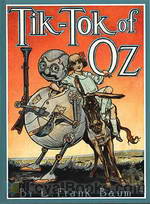 Tik-Tok of Oz
Tik-Tok of Oz
Betsy Bobbin encounters many strange and exciting adventures and people in the land of Oz; a side-plot is Queen Ann of Oogaboo’s mission to take over Oz. | |
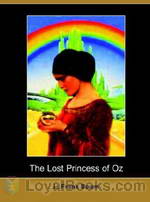 The Lost Princess of Oz
The Lost Princess of Oz
Who is stealing all the magic in Oz? Dorothy and her friends set out to comb all of Oz, not only for magic stolen from Glinda and the Wizard, but also for the kidnapped princess, Ozma. Along the way, they explore regions never seen in other Oz books, meeting strange and interesting people and animals, and falling into peril more than once. It’s a desperate mission – for if the thefts are all linked, then it means that some magician unknown to them has acquired powers beyond any available to them now. How will they find him? And how will they conquer him? Not one of them knows – but with continuing faith that goodness will triumph, they march forth to try. | |
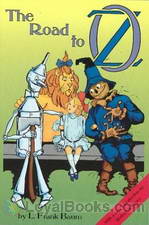 The Road to Oz
The Road to Oz
Dorothy and Toto set out to help the Shaggy Man (who really is very shaggy) and end up lost, following a strange new road. Along the way they meet Button Bright, a little boy who is not really very bright at all, The Rainbow's Daughter, the Fox King and many other curious creatures including the deadly Scoodlers who want to make soup of them and the Musicker who can't stop making music. But the adventurers make their way to the Deadly Desert and cross it in a novel way to reach the Land of Oz. Santa Clause is a surprise guest at Ozma's Birthday Party along with many Queens, Kings and and a wonderful time is had by all. Including Toto! [written by Phil Chenevert] | |
 The Emerald City of Oz
The Emerald City of Oz
Oh My Goodness! What a lot of incredible adventures are packed into this epic. The evil gnome king plots to destroy Oz and enslave it's people; evil creatures from many places are enlisted in this dastardly plan that has every chance of success. Dorothy brings her Aunt and Uncle from Kansas where they have been evicted from the farm, to live in Oz and they are given a tour of parts of Oz that have never been visited before. A city of paper dolls, a city of jig saw people, a city of bunnies and many many more odd and wonderful people are visited and enjoyed... | |